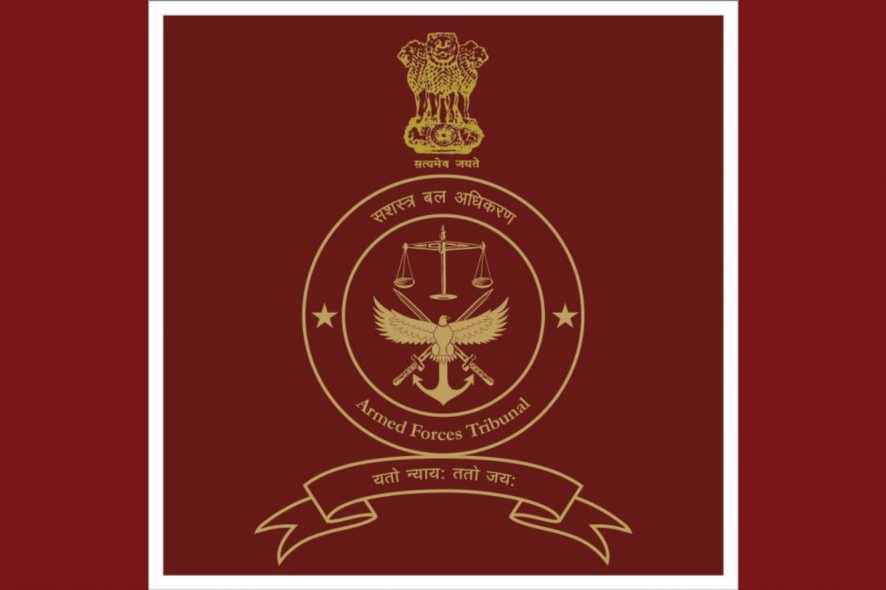Armed Forces Tribunal (AFT): The Division Bench of Justice Umesh Chandra Srivastava (Chairperson) and Vice Admiral Abhay Raghunath Karve (Member) A, heard the instant application alleging harassment by military hospitals (MH).
Background
The applicant was commissioned in the Indian Army on 15-12-1989. Due to disturbed married life, the applicant became a psychiatric patient and was treated in various Military Hospitals. The applicant could not adjust with his wife and in January 2012 he divorced his wife. He was not happy with the method of treatment of the psychiatric specialist, therefore; he decided to remain absent without leave (deserter) and even stopped medication on his own. The applicant alleged that,
Chief Engineer had issued Form – 10 to pick up the applicant from his house without any warning or any opportunity to defend in contravention of Articles 14 & 21 of the Constitution.
In the psychiatric ward, he was kept him under observation for 24 hours and was administered heavy doses of forced medication, injections and electric shocks. From April 2006 to July 2008, he was forcefully hospitalized several times at Jabalpur and was tortured by forced medication and high dose injections during treatment.
The State contended that the applicant had absconded from duty on being referred to MH and not because of alleged harassment. He did not perform the assigned job and was mostly on leave for his own affairs. It was further submitted that the officer was an indisciplined and habitual offender and did not obey rules and regulations.
Analysis by the Tribunal
On perusal of opinion of psychiatric specialist dated 07-12-2007 the Tribunal observed that the officer had an old case of “Schizoaffective Disorder” since 04-07-2006. The applicant’s behaviour was abnormal in dealing with others. During GCM he started feeling that everyone was complaining against him and wanted to harm him. He became depressed and developed disturbed bio drives. He started becoming irritable on minor issues and started resorting to violence, initially at home with his wife and children and threatened to kill them. During the same period he started over spending, became socially disinhibited, hypersexual and harboured grandiose feelings. Gradually he became more and more suspicious of people around him and started recording people‟s conversations.
“He used to hit himself at times with the intention of making his body supple, so as to be able to play the guitar well became extremely aggressive and violent, so much so that his wife and children had to lock themselves in a room and were forced to call the psychiatrist for help.”
In Subhajit Mondal v. Union of India, 2019 SCC OnLine Cal 443, Calcutta High Court had held that “once for appointment to Paramilitary force, a decision is taken based on the expert opinion of a medical board, a writ court exercising jurisdiction under Article 226 of the Constitution cannot sit as an appellate authority over the said decision and take a different view.”
The Tribunal opined that opinion of doctors of the Armed Forces should prevail over that of private or other government doctors on the question of an applicant’s physical/medical fitness. Since,
“The standard of physical/medical fitness for armed forces is more stringent than for civilian employment. The doctors of the forces are well aware of the demands of duties of the forces in the terrain in which the soldiers are required to work.”
While holding the demand of check-up by a civil doctor unsustainable in eyes of law, the Tribunal expressed that what might seem a minor difference in the assessment of the civil doctors in comparison to the assessment of the Medical Boards, might blow up into a serious health condition during the course of service.
Decision
The Tribunal opined that there was no convincing argument to believe that the Medical Board had given a biased medical opinion. The opinion given by the medical board did not suffer from any illegality or impropriety since there was no evidence that psychiatric specialists in various military hospitals where applicant had been treated have knowingly harassed the applicant.
The past medical history of the applicant showed that he was in need of appropriate medical care and treatment. Hence, the applicant was directed to report back/surrender himself to his unit. Further, the State was ordered to constitute a re-survey medical board (RSMB) to assess the present medical category of the applicant within one month. [Mukesh Baboo v. Union of India, 2021 SCC OnLine AFT 342, decided on 08-02-2021]
Kamini Sharma, Editorial Assistant has put this story together.



